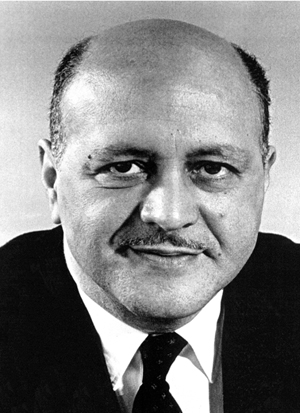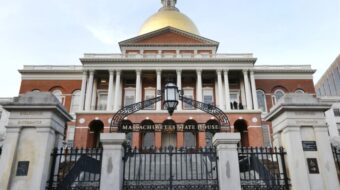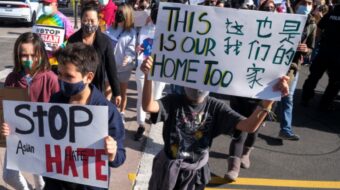
This week marks the 50th anniversary of the swearing-in of the first African-American Presidential Cabinet member in United States history. On January 18, 1966, Robert Clifton Weaver became the Secretary of Housing and Urban Development (HUD), appointed by President Lyndon B. Johnson. He served in that capacity through 1968.
Weaver had expressed his concerns about African Americans’ housing issue before 1930 in his article, “Negroes Need Housing”, published by the magazine The Crisis of the NAACP after the Stock Market Crash. He noted there was a great difference between the income of most African Americans and the cost of living; African Americans did not have enough housing supply because of many social factors, including the long economic decline of rural areas in the South. He suggested a government housing program to enable all the African Americans the chance to buy or rent their house.
A noted economist and administrator, Weaver was born in Washington, D.C., in 1907 into a middle-class family. His parents were Morgan Weaver, a postal worker, and Margaret Freeman, daughter of Dr. Robert Tanner Freeman, the first African American to graduate from Harvard University in dentistry.
From 1929 through 1934, Weaver attended Harvard, earning three degrees in economics: a B.S., M.A., and Ph.D. In the Franklin D. Roosevelt administration, Weaver worked as an adviser to Harold L. Ickes (one of the most outspoken supporters of civil rights in the Roosevelt administration), Secretary of the Interior (1933-37), special assistant for the Housing Authority (1937-40), and an administrative assistant with the National Defense Advisory Commission (1940). During the Second World War, he worked in several capacities concerned with mobilizing black labor into industrial employment contracted by the federal government. He was one of 45 prominent African Americans who helped make up Roosevelt’s “Black Cabinet,” or “Black Brain Trust,” the semi-official racial-affairs advisory committee.
In the immediate postwar period, Weaver held several successive positions with the federal government. His most noted positions were serving as the Department of the Interior’s first Black adviser on racial problems, and Chicago’s executive director of the Mayor’s Committee on Race Relations under Mayor Edward J. Kelly. Simultaneously, Weaver taught at several universities and directed the fellowship department at the John Hay Whitney Foundation (1949-1955). Thereafter, he became a member of New York State Gov. W. Averell Harriman’s cabinet as rent commissioner (1955-1959), the first black State Cabinet member in New York. He was then named to New York City’s Housing and Redevelopment Board.
Before reentering Washington’s “beltway politics,” Weaver chaired the NAACP. In 1961, he was appointed by Pres. John F. Kennedy to head the Housing and Home Finance Agency. After his term at the helm of the new HUD, Weaver became president of Bernard M. Baruch College (1969-70), and then became a professor of urban affairs at Hunter College (1970-1978).
Weaver’s books include Negro Labor: A National Problem (1946), The Negro Ghetto (1948), The Urban Complex: Human Values in Urban Life (1964), and Dilemmas of Urban America (1965).
Weaver died in New York City in 1997 at the age of 89. In the year 2000, the HUD headquarters building, which Weaver had dedicated at its completion in 1968, was renamed the Robert C. Weaver Federal Building in his honor. In 2006, a street was named after him in NE Washington, D.C., Robert Clifton Weaver Way.
Source: blackpast.org and Wikipedia.
Photo: Robert C. Weaver official portrait by Department of Housing and Urban Development. Licensed under Public Domain via Commons.










